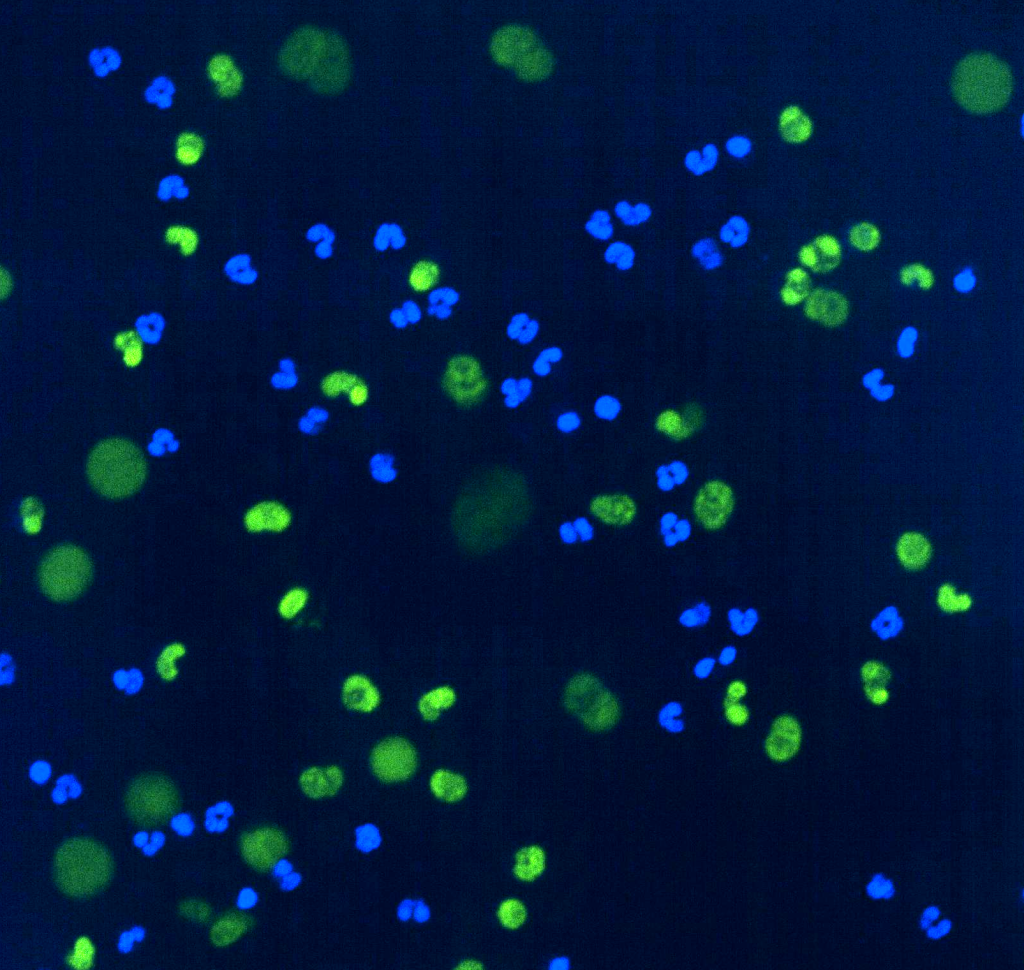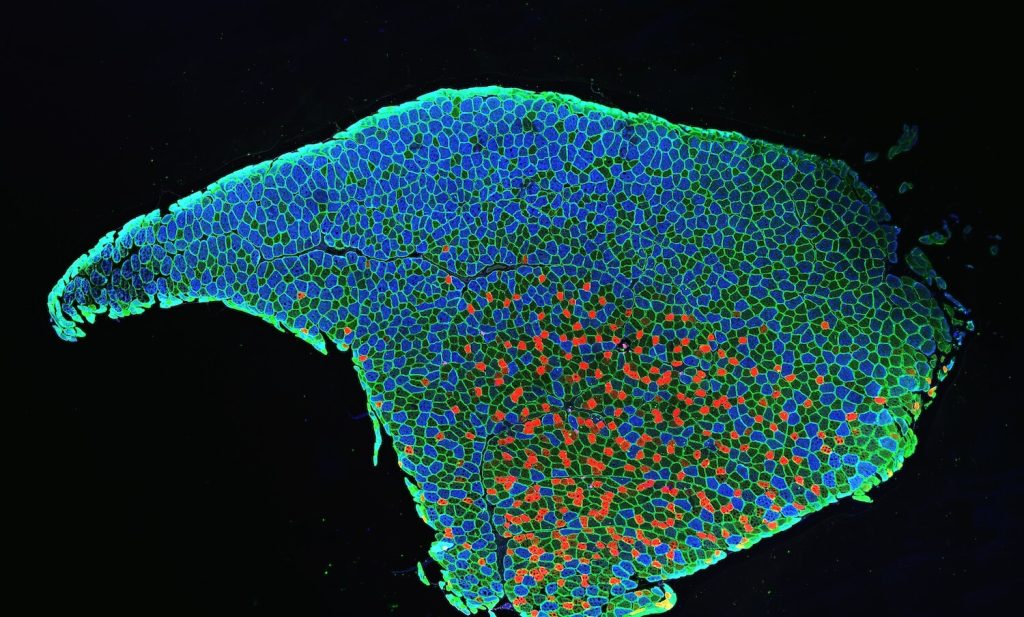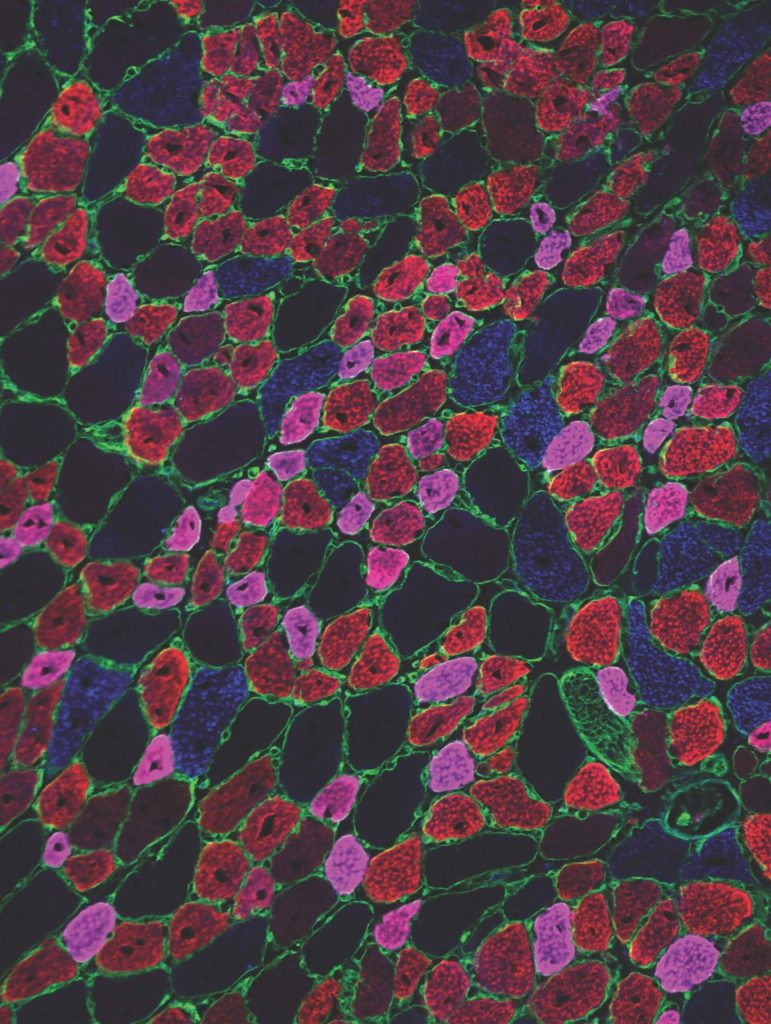Researchers at the Children’s Medical Center Research Institute at UT Southwestern (CRI), the University of California at San Francisco and the University of Michigan have solved a mystery that has stumped scientists for years, discovering how leukemia-causing mutations enable pre-leukemic stem cells to outperform their healthy counterparts.
The development of leukemia is known to depend upon the accumulation of multiple mutations, mainly in blood-forming stem cells. Scientists have surmised that the initial pre-leukemic mutations confer a competitive advantage on pre-leukemic stem cells, allowing them to expand in number and crowd out normal stem cells.
The investigation, published in Nature, discovered that the overpowering ability of the pre-leukemic cells is tied to a very unusual bimodal mechanism — triggering one subset of stem cells to clonally expand by dividing more, and another subset to provide long-term self-renewal by dividing less.
“The discovery that a single mutation can have different effects on different subpopulations of stem cells adds a new layer of complexity to our understanding of the process by which leukemia arises,” said Dr. Sean Morrison, Director of CRI, Professor of Pediatrics and the Mary McDermott Cook Chair in Pediatric Genetics at UT Southwestern Medical Center. “It will now be interesting to determine whether all mutations that increase stem cell competitiveness prior to the initiation of cancer do so through similar bimodal effects within the stem cell pool.”
The study involved engineering mice to carry a cancer-causing genetic mutation known as NRAS-G12D, believed to be involved in the early stages of leukemia development. Instead of losing their capacity to self-renew and becoming depleted — as would normally happen when blood-forming stem cells are forced to divide — the pre-leukemic stem cells in the mice with an NRAS-G12D mutation gained in their ability to self-renew and expanded in number.
“This finding is of particular interest for hematologists because NRAS is one of the most common genes that is mutated in pediatric and adult blood cancers,” said Dr. Kevin Shannon, Professor of Pediatrics at the University of California at San Francisco, where the study originated. “The unique properties of hematopoietic stem cells containing NRAS mutations discovered by Dr. Morrison’s team provide a logical biological explanation for why these NRAS mutations are so prevalent in leukemia cells.”
“The phenomenon that a single mutation promotes the proliferation of some stem cells but at the same time prevents a small number of other stem cells from dividing is particularly interesting,” said Dr. Qing Li, Assistant Professor at the University of Michigan, whose lab completed the study. “We have thought for many years that the persistence of a quiescent stem cell population is responsible for frequent leukemia relapses and treatment failure. Now identifying how NRAS differentially influences the division of different subsets of stem cells will provide new insights that could help us tackle the quiescent population.”
The paper’s first and co-corresponding author, Qing Li, is an assistant professor at the University of Michigan (UM). The study began when Dr. Li was a hematology/oncology fellow in Dr. Shannon’s lab, continued when Dr. Li worked in the same capacity in Dr. Morrison’s previous lab at UM, and was completed in Dr. Li’s lab at UM. Dr. Morrison’s work on the research at CRI was supported by the Cancer Prevention and Research Institute of Texas, the Howard Hughes Medical Institute, and donors to Children’s Medical Center Foundation.
About CRI
Children’s Medical Center Research Institute at UT Southwestern (CRI) is a joint venture established in 2011 to build upon the comprehensive clinical expertise of Children’s Medical Center of Dallas and the internationally recognized scientific excellence of UT Southwestern Medical Center. CRI’s mission is to perform transformative biomedical research to better understand the biological basis of disease, seeking breakthroughs that can change scientific fields and yield new strategies for treating disease. Located in Dallas, Texas, CRI is creating interdisciplinary groups of exceptional scientists and physicians to pursue research at the interface of regenerative medicine, cancer biology and metabolism, fields that hold uncommon potential for advancing science and medicine. More information about CRI is available on its website: cri.utsw.edu.



